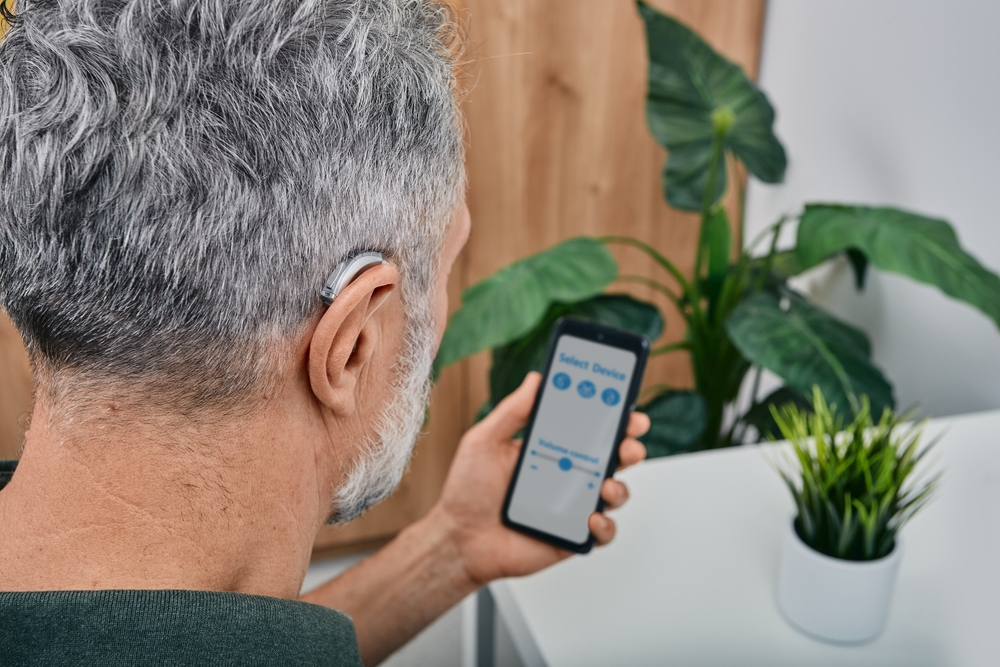
Socializing with family and friends and interacting with co-workers can be negatively influenced by even mild hearing loss, and this also includes everyday activities like shopping. But transformative changes can be brought about by the use of correctly tuned hearing aids.
Top ten reasons to get hearing aids
While the primary benefit of hearing aids is obvious, improved hearing, their impact goes far beyond basic auditory enhancement. The following will comprehensively outline those advantages.
Better relationships and communication
Personal relationships rely on the ability to communicate clearly. Relationships can be strained when hearing loss causes missed communication. Feelings of separation and stress will be decreased and your ability to communicate with others will be improved by using hearing aids.
Improved independence
Neglected hearing loss results in barriers in communication causing activities like going shopping to become challenging. Your ability to understand speech and hear in various environments will be empowered by hearing aids, allowing you to navigate these situations more independently. This newfound independence extends to activities like driving, where enhanced situational awareness leads to safer experiences.
Prospect of higher income
In professional situations, effective communication is critical. Untreated hearing loss can hamper your ability to take part in meetings or discussions completely, potentially impacting job performance and career advancement. You can increase your productivity, which can, in turn, result in career opportunities, by using hearing aids to stay more alert and engaged.
Discomfort from tinnitus can be reduced
Hearing loss is frequently accompanied by tinnitus symptoms or ringing in the ears. Many individuals find that wearing hearing aids helps mask tinnitus sounds, offering relief and improving all-around comfort.
Cognitive decline can be mitigated
A link between cognitive decline and dementia, and hearing loss has been indicated by the results of some research. By managing hearing loss with hearing aids, you might reduce the risk of cognitive impairment and maintain better overall brain health.
The enjoyment of music
The perception of music will be less pleasant if hearing loss is distorting your perception of it. The fullness and richness of musical sounds can be restored by hearing aids which fill in the frequency gaps so you can take pleasure in your favorite songs once more.
Boosted confidence
Whether you’re in a social or professional setting, being able to hear better will give you more confidence. Your general quality of life will be enhanced and you will feel more competent when you can communicate better.
Increased energy levels
Untreated hearing loss can be mentally tiring, as the brain works extra hard to make up for auditory deficiencies. Hearing aids decrease this strain, giving you mental relief and allowing you to enjoy activities without feeling constantly tired.
Enhanced safety and awareness
Awareness of one’s environment is essential for safety, whether it’s crossing the street or driving a car. Environmental sounds can be restored by hearing aids, ensuring that your response to things including alarms and approaching vehicles is safe and correct.
Setting a positive example
Choosing to wear hearing aids displays a proactive approach to health and well-being, establishing a positive example for other people dealing with similar difficulties. It inspires people around you by showing a commitment to personal improvement and growth.
Schedule a hearing exam today
Hearing aids are mainly created to help you hear better, but numerous other aspects of your life can be significantly impacted too. Whether it’s nurturing better relationships, increasing independence, or safeguarding mental health, the decision to use hearing aids is a step towards a more fulfilling and engaged life.
Make an appointment for a hearing test today and take the initial steps to better hearing.